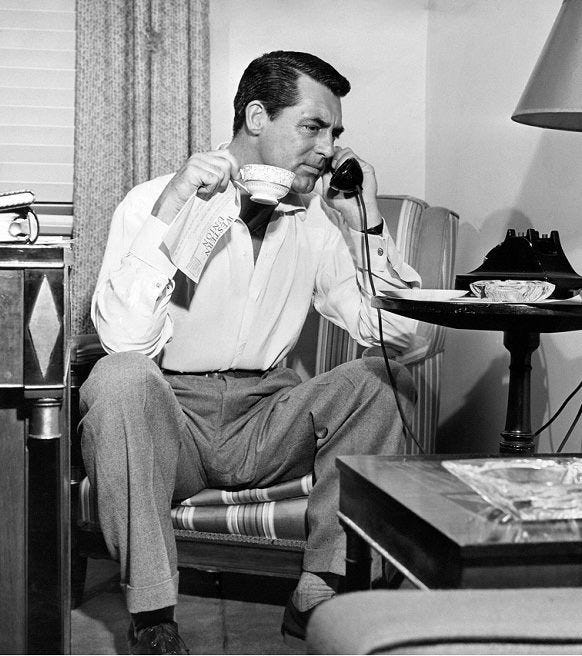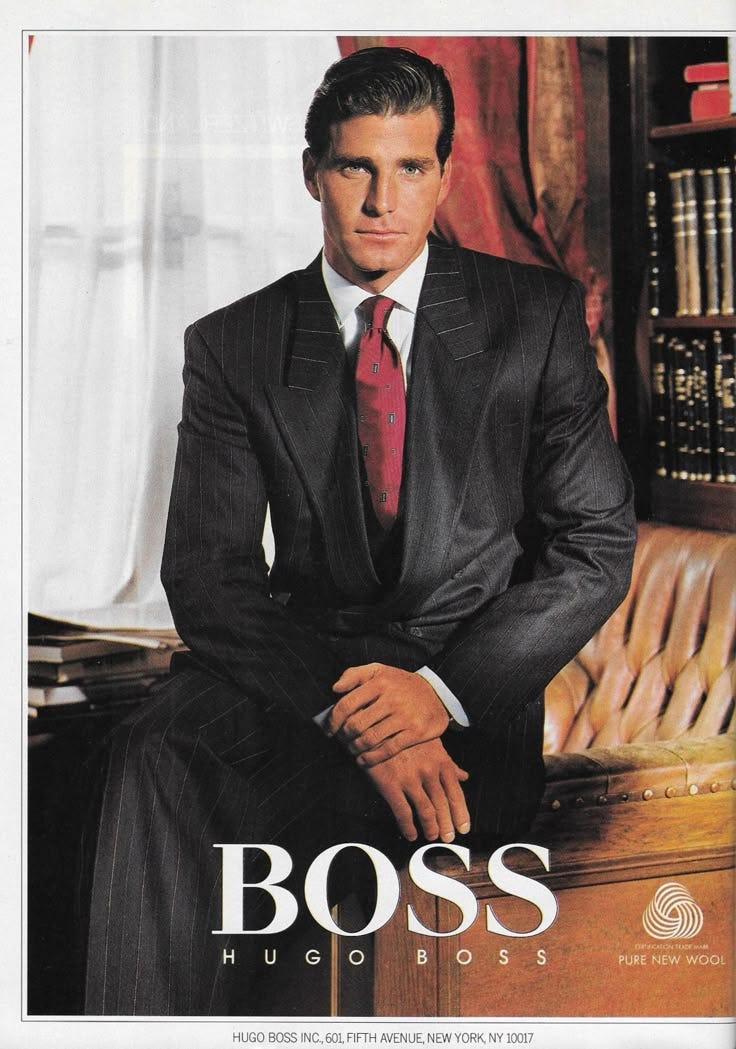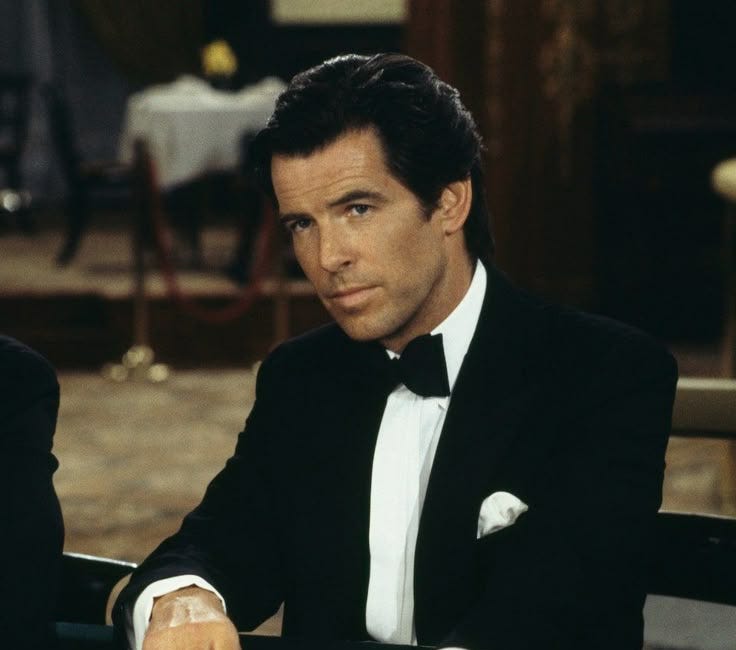I always liked to work on myself and keep myself busy in my free time with other options besides entertainment.
Not that you should stop having fun, fun can’t stop, it can only rest. In my opinion, using free time to work on yourself is a welcome thing.
I’m going to talk about basic things like:
Diction
Body Posture
Personal Organization
These are really simple things that make a difference. For example, you would naturally find it unpleasant to have to communicate with someone who is difficult to understand, constantly asking yourself, "What is this guy saying?".
Your posture is like a reflection to others; people judge you by how you position yourself. It's something natural and not their fault, because they only respond to what they see.
For personal organization, my friend, if you don't get your life together, you will forever be a pawn of destiny and waste time. In my opinion, personal organization without obsession is about avoiding stress and saving time.
(To be clear, I don't like to try to control every single thing in my day; personal organization shouldn't be so rigid, just a foundation.)
Diction
"The manner of articulating or pronouncing words; pronunciation, enunciation."
Diction is how well you make words sound. Think of a really good actor (I'll say Morgan Freeman or Michael Caine). Their voices are memorable because they have great diction. The words sound so clear and clean, with rhythm, that it becomes a pleasure to listen to them.
It's actually very simple, but very useful. The way you speak is a tool; it can completely seduce or cause a bad impression.
For example, sometimes you can tell someone is drunk just by their terrible diction, and you automatically want to get away from that person, unless they're your friend.
"The ability to make communication effective, ensuring messages are understood with clarity and precision.
Good diction increases the speaker's credibility, conveys security and self-confidence, and improves their personal and professional image."
For those who know how to use their voice and words, speaking becomes more than just basic, it becomes a quality.
Like an Actor Delivering Lines
As I mentioned with actors Morgan Freeman and Michael Caine, good diction makes a person sound like an actor delivering their lines, which makes communication a thousand times easier.
It will depend on your goal; probably not everyone wants to become a professional speaker, but if you improve to the point of being able to speak clearly and understandably, that's already great progress.
And training your diction is actually quite simple:
Vowel and Consonant Drills
These exercises focus on the individual sounds that make up words.
Vowel Clarity: Practice saying and sustaining the core vowel sounds: a, e, i, o, u. Ensure each sound is clear and consistent.
Plosive Consonants: Focus on words with "p," "t," "k," and "b" sounds, making them crisp and explosive. For example, say "po-ke," "to-ne," "co-pe," and "bo-at" slowly and deliberately.
Consonant Combinations: Practice words with tricky consonant blends, such as "truly rural" or "three free throws."
Another one:
Tongue Twisters
Tongue twisters are a classic and highly effective way to train your diction. They challenge your mouth muscles to work quickly and precisely.
Start Slow: Begin by saying the tongue twister very slowly, focusing on articulating every single sound.
Gradually Increase Speed: Once you can say it slowly without mistakes, gradually increase your speed while maintaining clarity. If you make a mistake, slow down again.
Common Tongue Twisters:
Peter Piper picked a peck of pickled peppers.
She sells seashells by the seashore.
Red lorry, yellow lorry.
How much wood would a woodchuck chuck if a woodchuck could chuck wood?
Unique New York, New York's unique.
Betty Botter bought some butter, but she said the butter's bitter.
Tips
Record Yourself: Use your phone to record your voice while doing the exercises or reading a passage. Listen back to identify sounds or words that are unclear.
Exaggerate: When you're first learning, it's helpful to exaggerate the movements of your mouth and the pronunciation of sounds. This helps build muscle memory.
Read Aloud: Read a passage from a book or newspaper aloud every day, focusing on the clarity of each word.
Consistency is Key: The best way to improve your diction is through regular, daily practice. Even just 5-10 minutes a day can make a significant difference over time.
Practicing diction is crucial for any man because it directly impacts credibility and overall effectiveness in every aspect of life.
Clear, confident lines show that you are prepared and cool about your message, whether you're in a job interview, leading a team meeting, pitching an idea, or flirting.
Good diction also prevents misunderstandings.
Body Posture
"Body posture is the way your body aligns and maintains its balance, whether standing, sitting, or moving.
It's the natural way the body takes a position, using the musculoskeletal system to support the body and joints in a healthy manner, distributing loads to avoid wear and fatigue."
In other words, it's how you position your body. Sloppy, confident, hunched, sideways, cool, it's how you project yourself.
As I said before, people will look at you and judge you (most of the time unconsciously) by your body posture.
"That guy is confident, look at how he walks."
"That girl is shy, look at how she shrinks."
It's like that.
"Body posture is essential in social dynamics because it communicates confidence, interest, and an individual's emotional state, affecting how others perceive us."
The interesting thing about posture is that it's something that affects you both internally and externally.
Internally because studies prove it affects your emotional state and your health.
Externally because it completely changes the perception others have of you.
I've worked in security, and the supreme recommendation is to maintain a confident and alert posture, because besides conveying professionalism, it can prevent someone with bad intentions from trying their luck.
It's curious to look at old photos; most men seemed to have an innate sense of posture and behavior, all upright and confident.
Of course, this involves other factors like the drop in testosterone (competitive and confident behavior affected), unhealthy diets (muscle weakening), and lack of discipline from an early age.
It's ridiculous to see how young people walk around so sloppily. I'm not even saying you need to walk like a military man at all times, but it's a level of absurd lack of self-respect.
Another point is that body posture is also about self-respect and dignity. How much does that guy value and trust himself?
He walks with his back straight and looks everyone in the eye; he seems to hold himself in high esteem.
Basically, women are experts at this, at reading a man completely, analyzing him at all times. Although the trend today is to have an appeal for failures while they are young...
The False Propaganda that Losers Get the Pretty Girls
The modern world and its weirdness have been spreading a false idea for years, a shameless propaganda that is implanting itself in the minds of young people:
They still unconsciously read us men.
The truth is that if you want to have a average girl, which is very common, and get along with her, all you have to do is be a man who is a failure in masculinity like most others, but keep in mind that in the future she will realize that she is missing that fire of a virile man, and she will cheat on you or simply leave and break you.
Or maybe you'll wake up and see that she's pretty but empty-headed and that you probably wouldn't want to live a life with a wife and kids or have her accept you as the leader of the relationship, so you'll have to break up with her.
Now, if you want to find a feminine girl with values and who is worth it, from the beginning you have to correct yourself, because this type of girl uses her feminine scanner to filter if you are a real man or an average modern weak guy.
And you can start correcting this with your posture:
Strengthen Your Core and Back
Weak core muscles (abdominals, back, and glutes) are a primary cause of poor posture. Strengthening these muscles provides the support your spine needs to maintain proper alignment.
Plank: This classic exercise strengthens your entire core. Start on your forearms and toes, keeping your body in a straight line from head to heels.
Stand with your back against a wall. Your head, shoulders, and glutes should touch the wall.
Place your feet a few inches out from the wall.
Your lower back should have a small, natural curve, so there will be a little space between the wall and your back.
Try to maintain this feeling of alignment as you walk away from the wall.
Like a Military Man or Cool Actor (I recommend reading)
Personal Organization
"Personal organization is the ability to manage time, tasks, goals, and routine efficiently to achieve objectives and have a more productive life, both personally and professionally."
Imagine that you're a badass like Bruce Wayne, you know what you want
You know what you don't want
You know what you're going to train for
You know what you're going to avoid.
I recognize that this is not natural for everyone. Some naturally have a more planning mind, and others don't.
I personally have a more planning mind, but that doesn't mean I like to keep everything under control in the smallest details; for me, this creates an obsession with what is not under control, which is terrible.
Organization only works when there is room for unforeseen events, improvisation, and changes.
If you want to have a personal plan that happens 100% as planned, know that the chances are minimal. On the other hand, if your personal organization has flexibility and works as a foundation, your chances increase and you free yourself from the frustration of "damn, it didn't go as planned."
Let's just talk about the basics of personal organization:
Daily Tasks
A to-do list is very useful and simple. You write down what you need to do in a list and simply do it and cross the task off.
This reminds you and gives you focus, so instead of you looking at your cell phone doing nothing cool, you'll look at the list and think, "Ah yes, I have to do this."
It's impressive how much you can do in just one day if you have focus and discipline.
It's no exaggeration to say that you can do more things in just one day than in three days.
And when you manage to live a day where you solve problems and have some free time left over at night, that's when you are the most satisfied man on earth.
Apps or paper and pen lists?
I don't know about you, but with apps, I end up forgetting about them. But with lists, it's as if I print what I wrote directly into my mind; even without checking the list, I end up remembering it as if it were a real obligation.
It's actually pretty cool to write things on paper. It's old-fashioned, good for the brain, and has a greater positive impact.
"Vril, I don't like this, I like to be spontaneous."
I didn't say you have to become a robot. Remember what I said: it's just a foundation and not a supreme law that must be followed.
Your Organized Environment
Man, it's your batcave at work or at home; you should know where every item is.
Besides making the environment more beautiful, it will make you the sovereign of the place because you know where absolutely everything is.
It's a strategic advantage. It eliminates wasted time and stress. When your space is in order, your mind is clear. This frees up energy to focus on what matters.
It's also important to have things in your environment that make the place more masculine.
In my room, for example, there's a bookshelf with books, an sometines Indiana Jones hat hanging on the wall, and a punching bag in the next room.
Before you organize anything, you must declutter. An organized mess is still a mess. Go through every item in your chosen area and decide if it's essential. Ask yourself: "Do I use this? Does it add value to my life? Will I need it in the near future?" If the answer to any of those questions is no, get rid of it. You can throw it out, donate it, or sell it.
Once you've decided what to keep, give every single item a specific "home." Binders for documents, a hook for your keys, a tray for your wallet and phone. When you're done using something, put it back in its home. This simple habit prevents clutter from building up again.
Now let's talk about goals.
Future Plans/How to Achieve Them
Setting and following a plan for your future is crucial for success and a cool life.
A plan gives you a clear path forward, helping you define your goals and organize the steps needed to achieve them.
Without a plan, you risk drifting without purpose, reacting to life instead of actively creating it.
Living in that state where every day is boring, and you feel like your energy and your days are being wasted.
Being in this state makes it easier to fall into addictions and depressive states, from personal experience.
Tips for Effective Planning
Define Your Vision: Before you can plan the journey, you need to know the destination. Start by clearly defining your long-term vision. What do you want to achieve in the next 2 or 5 years/months? Think about different areas of your life, such as your career, relationships, health, and finances. Be specific and visualize what success looks like for you. Always keep in mind that your ambitions can change, so I don't recommend creating plans as rigid as 10 years out. Having an open mind to possibilities is welcome.
Set SMART Goals: Once you have your vision, break it down into SMART goals:
Specific: Clearly defined, not vague.
Measurable: You can track your progress.
Achievable: Realistic given your resources.
Relevant: Aligned with your long-term vision.
Create a Timeline: Organize your goals on a timeline. Start with the long-term goals and work backward to establish milestones. For example, if your goal is to launch a business in five years, what do you need to accomplish in one year? In six months? This backward planning helps you create a logical sequence of actions. As Tom Cruise said in an interview about the latest Mission: Impossible: break your goal down into smaller goals and write them down.
Stay Flexible: While a plan is a guide, it shouldn't be a rigid prison. I believe this is one of the reasons why some people avoid organizing; superficially, they believe it to be a prison. Life is unpredictable. Be prepared to adapt your plan when faced with unexpected challenges or opportunities.
The purpose of the plan is to give you direction, not to prevent you from taking a better path if one presents itself.
Review your plan regularly and adjust it as your circumstances and priorities change. Sometimes life can offer you a whole new opportunity or take something away from you.
You need to stay on your toes, agile, and attentive.





